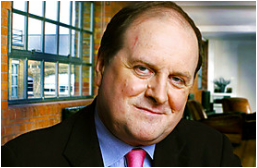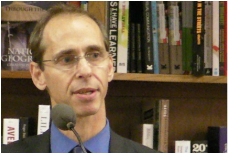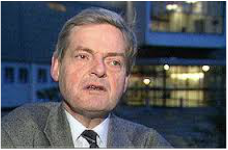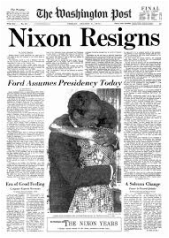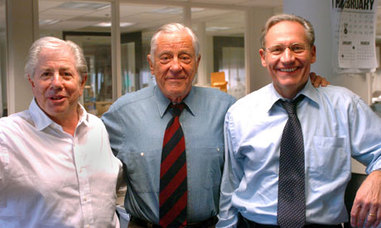Ben Bradlee 1921 – 2014How the Washington Post said goodbye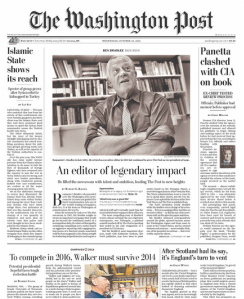
Tuesday 21 October, 2014 Benjamin C. Bradlee, who presided over The Washington Post newsroom for 26 years and guided The Post’s transformation into one of the world’s leading newspapers, died Oct. 21 at his home in Washington of natural causes. He was 93.
From the moment he took over The Post newsroom in 1965, Mr. Bradlee sought to create an important newspaper that would go far beyond the traditional model of a metropolitan daily. He achieved that goal by combining compelling news stories based on aggressive reporting with engaging feature pieces of a kind previously associated with the best magazines. His charm and gift for leadership helped him hire and inspire a talented staff and eventually made him the most celebrated newspaper editor of his era. The most compelling story of Mr. Bradlee’s tenure, almost certainly the one of greatest consequence, was Watergate, a political scandal touched off by The Post’s reporting that ended in the only resignation of a president in US history. But Mr. Bradlee’s most important decision, made with Katharine Graham, The Post’s publisher, may have been to print stories based on the Pentagon Papers, a secret Pentagon history of the Vietnam War. The Nixon administration went to court to try to quash those stories, but the US Supreme Court upheld the decision of the New York Times and The Post to publish them... Read the full Washington Post article and see a picture gallery here 
Newspapers don’t tell the truth under many different, and occasionally innocent, scenarios.
Mostly when they don’t know the truth. Or when they quote someone who does not know the truth. And more and more, when they quote someone who is spinning the truth...And finally, when they quote someone who is flat-out lying - The Independent has published a long extract from Bradlee's Press-Enterprise Lecture of 1997. You can read more of it here
For those of us lucky enough to fall under the spell at close quarters, time with Bradlee was always exhilarating. Whether he was showing you a picture of LBJ's gall bladder scar, describing lunches with that weird guru of counter-intelligence, James Jesus Angleton, or enjoying the recollection of a phone call from Bob Haldeman or John Ehrlichman, life was rosier. At a table or in a bar, he was a magical presence.
Smart editors have a knack for calling bullshit on bullshit, and Bradlee was a pro at that. He had called bullshit on Richard Nixon several times, and he had even called bullshit on himself after the paper published a series of prize-winning stories that had been fabricated by its reporter, Janet Cooke; the Post’s apology was complete, and its internal investigation, which criticized Bradlee, was blunt. On this late November afternoon, Bradlee was calling bullshit on me.
Side by side with Katharine Graham, he turned the Washington Post from an average, struggling city daily into a phenomenon that, for a time, seemed to challenge the New York Times. But the Graham family didn’t have the ambition, or the money, to sustain it. So now the baton has passed to Jeff Bezos. Now the Post’s future, if any, depends on the Amazon billionaire’s fortunes...This is workaday history, not Hollywood history. This is ordinary, toilsome life in a bygone newsroom. |
|
In his own words

You never monkey
with the truth 
Hire people smarter than you are and encourage them
to bloom 
If an investigative reporter finds out that someone has been robbing the store, that may be 'gotcha' journalism, but it's also good journalism

Maybe some of today's papers have too many 'feel-good' features, but there is a lot of good news out there

There have been as many investigative reporters on this newspaper working on Clinton's many problems as I can remember there were working on Watergate

I never believed that Nixon could fully resurrect himself. And the proof of that was in the obits
Bob Woodward
and Carl Bernstein 
Ben was a true friend and genius leader in journalism. He forever altered our business. His one unbending principle was the quest for the truth and the necessity of that pursuit. He had the courage of an army. Ben had an intuitive understanding of the history of our profession, its formative impact on him and all of us. But he was utterly liberated from that. He was an original who charted his own course. We loved him deeply, and he will never be forgotten or replaced in our lives
President Obama

For Benjamin Bradlee, journalism was more than a profession – it was a public good vital to our democracy
|
Please sign up for SubScribe updates
(no spam, no more than one every week or two)
|
|
|


